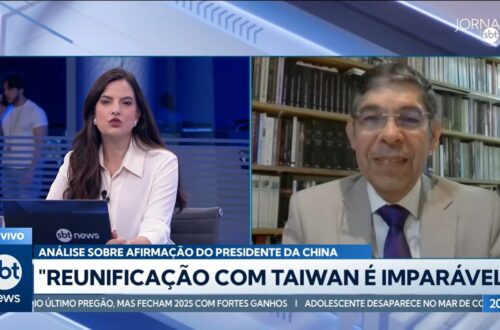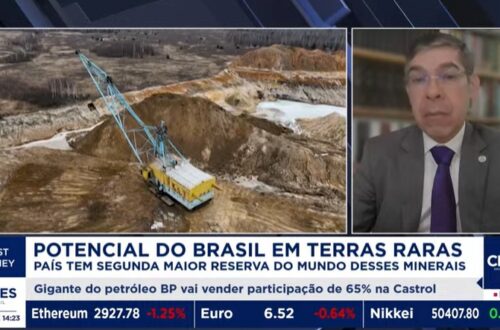What is now at stake in Ukraine regarding NATO membership is whether Russia as a nation has the right to guarantee the minimum security conditions for its population and territory, writes Charles Pennaforte, Professor at the Federal University of Pelotas (Brazil).
The meeting between Vladimir Putin and Xi Jinping in February 2022 should be seen as historical from a geopolitical and strategic point of view. The meeting marks the end of the “Post-Cold War” period which started to emerge in 1989 with the fall of the so-called Eastern Bloc, and began in earnest in December 1991, with the extinction of the Soviet Union. During the 1990s, the world was hegemonised amid what was thought of as the “End of History”: the supremacy of Western liberalism and globalisation, which ultimately led to global economic crises. This historical process would culminate in the financial outburst of 2008.
International relations are now entering a stage that we could qualify as a “Late Post-Cold War Era”, an era when American supremacy is in the process of being overcome by the new reality of the country: its geopolitical decline. This has only confirmed predictions offered by Immanuel Wallerstein and Giovanni Arrighi more than a decade ago. The current configuration of the World Order has no more room for a single nation to decide the entire world agenda, whether in geopolitics or economics.
For neoliberal analysts, the economy is the only dimension that matters. Geopolitics itself is despised in their short-range view, which steadfastly clings to the idea that Western capitalism is still the winner of the clash between socialism and capitalism.
However, fears that Russia is growing stronger as a nation under more capable leadership have taken root in Washington. In recent decades, Russia has recovered economically, socially and militarily, returning as a Great Power to the global stage. The delay in the “transition towards liberal western capitalism” of both Russia and China is a concern for Americans: there won’t be any “velvet revolutions” so far. Anti-systemic countries like Russia and China, which maintain their own national plans, are the real problem underpinning the belligerent Washington rhetoric of both Democrats and Republicans against Beijing and Moscow.
Despite the end of the USSR, Washington’s ideologues haven’t abandoned the narrative of a clash between capitalism and socialism, where Russia is presented as the major geopolitical and strategic obstacle facing the US in Europe. While the socialist military alliance (Warsaw Pact) was dismantled decades ago, the same didn’t happen with NATO. Since the 1990s, the organisation has increased its influence in Eastern Europe: Latvia, Estonia, Lithuania, and Hungary, for example, became members of the Western military alliance for no apparent reason.
Since 1991, Moscow has never adopted a stance which would signal that it could go on the offense against any country in Eastern Europe or elsewhere in the world. Russia’s actions have always complied with accepted norms and international law, unlike those of Washington. Nevertheless, successive US administrations have sought to classify Russia as a threat to European or global “security” without offering any concrete examples.
The rhetoric of the “Russian threat” gained prominence after the “annexation” of Crimea in 2014 (achieved through a plebiscite) following a Western-backed “colour revolution” in Kiev that paved the way for what we are seeing today: the concrete or rhetorical possibility of the incorporation of Ukraine into NATO, baselessly jeopardising Russian security.
From Moscow’s standpoint, the Crimean peninsula had been part of Russia until 1956, when it was ceded to Soviet Ukraine. A majority of the population there is ethnically Russian and nearly everyone speaks Russian as their first language (one of the February 2014 junta’s first moves was to attempt to strip them of their language rights).
NATO’s attempt to move “towards” Russia by establishing a Ukrainian “beachhead” has been developing since late 2021 and has faced vigorous opposition from the Kremlin. In the West, the information war led by the pro-US media is intense. Russia is commonly depicted as the USSR of the Cold War times, threatening the “Free World” in the form of democratic Ukraine. Washington’s narrative of an imminent “Russian invasion” is a recurring theme in Western media.
What is now at stake in Ukraine regarding NATO membership is whether Russia as a nation has the right to guarantee the minimum security conditions for its population and territory (a fundamental principle on which the OSCE is based). Didn’t the US have a similar argument during the Cuban Missile Crisis? Thus, what is the sense of NATO’s existence in the 21st century?
Published on ValdaiClub The Strategic Partnership Between Moscow and Beijing Towards the Late Post-Cold War Era — Valdai Club










